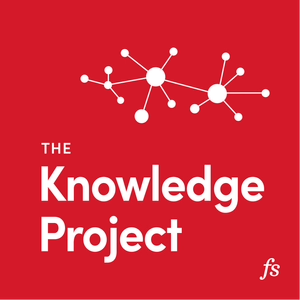
Rethinking the Justice System: A Digital Jurisdiction for Decentralized Organisations
12/22/20 • 44 min
In today's world, life and business is moving more into to a virtual space and this has of course been accelerated as a result of the Covid pandemic. Now more than ever it is important to rethink the very basis of how we organise, make decisions, and structure the world’s governance. And how can we do this in the context of crypto and Web3?
Web3 infrastructure can provide the foundations of a digital jurisdiction. In the Web3 world rules are enforced by decentralized governance and DAOs allow for a group of stakeholders to participate in governance of an organisation that has no affiliation to a nation state. How do we treat that in the judicial system and how does it sit within existing national jurisdictions?
Topics covered in this episode:
- What is a digital jurisdiction?
- How Aragon is helping create decentralised autonomous organisations and communities
- The behaviours of millennials today and how geographical borders have fallen
- How to ensure new digital jurisdictions remain utopian
- Some applications currently being built on Aragon
- Where new systems sit within current judicial systems
- Why Tim invested in the Aragon Network Token (ANT) model
Episode links:
- Powered By Aragon
- Aragon Project on Twitter
- Draper Associates
- Luis Cuende on Twitter
- Tim Draper on Twitter
- Luis on Epicenter: Episode #236
- Rethinking the Justice System: A Digital Jurisdiction for Decentralised Organisations | CogX 2020
- Fabric Ventures
- CogX
Show notes and listening options: epicenter.tv/371
In today's world, life and business is moving more into to a virtual space and this has of course been accelerated as a result of the Covid pandemic. Now more than ever it is important to rethink the very basis of how we organise, make decisions, and structure the world’s governance. And how can we do this in the context of crypto and Web3?
Web3 infrastructure can provide the foundations of a digital jurisdiction. In the Web3 world rules are enforced by decentralized governance and DAOs allow for a group of stakeholders to participate in governance of an organisation that has no affiliation to a nation state. How do we treat that in the judicial system and how does it sit within existing national jurisdictions?
Topics covered in this episode:
- What is a digital jurisdiction?
- How Aragon is helping create decentralised autonomous organisations and communities
- The behaviours of millennials today and how geographical borders have fallen
- How to ensure new digital jurisdictions remain utopian
- Some applications currently being built on Aragon
- Where new systems sit within current judicial systems
- Why Tim invested in the Aragon Network Token (ANT) model
Episode links:
- Powered By Aragon
- Aragon Project on Twitter
- Draper Associates
- Luis Cuende on Twitter
- Tim Draper on Twitter
- Luis on Epicenter: Episode #236
- Rethinking the Justice System: A Digital Jurisdiction for Decentralised Organisations | CogX 2020
- Fabric Ventures
- CogX
Show notes and listening options: epicenter.tv/371
Previous Episode

Leonard Tan & Yong Zhen Yu: The Decentralized Key Management and Login System for Web3
Torus is an open-source and universal key management system for the Web3 ecosystem. It's simple, secure and non-custodial, and suitable for anyone to manage their keys. Torus runs a Distributed Key Generation protocol built on Shamir's Secret Sharing.
Supporting over a hundred thousand authentications a month on popular applications like AAVE, KyberSwap, Augur, GoodDollar, and MyCryptoHeroes, Torus empowers decentralised applications with seamless user onboarding flows while maintaining recoverability and high standards of security for key management.
The Torus Wallet is the second layer to the system and allows one-click login and authentication on partners including Gmail, Facebook, or passwordless logins on Web3 applications. It is however reinforced behind the scenes by a clever distributed architecture. Notably, clever cryptography makes it possible for users to send crypto to social accounts that don't yet have crypto wallet. For example, one could send crypto to a Twitter username, which could be claimed once the recipient creates an account.
The team also recently released a custom version of two-factor authentication (2FA), tKey.
We were joined by Founders of Torus, Yong Zhen Yu and Leonard Tan, who gave us fascinating insight into why and how Torus was built, the recent products released, and what their aims are for the future.
Topics covered in this episode:
- Zhen and Leonard's backgrounds and how they got into crypto
- How and why Torus was formed
- The path Torus has followed over the past year
- Unwrapping the base layer, the Torus Network
- How Shamir's Secret Sharing works and why Torus chose to build on it
- The Torus Wallet and a step by step of how it works
- Torus and account portability
- Use cases and applications built on Torus
- The second layer of security, tKey
- Their plans for introducing Touch ID
- How Torus educate their users on how to stay secure
- The long term goal for Torus and how users are protected in the future
Episode links:
- Torus website
- Torus Status
- A beginner’s guide to Shamir’s Secret Sharing
- Developer documentation
- Torus on Telegram
- Torus Charity Twitter Campaign
- What Distributed Key Generation Is
- Key Assignments, Resolution and Retrieval
- How to Share a Secret in Production
- tKey - An open standard for threshold key management - HackMD
- Torus on Twitter
- Zhen on Twitter
- Leonard on Twitter
This episode is hosted by Sebastien Couture. Show notes and listening options: epicenter.tv/B003
Next Episode

The Path to Digital Democracy
In this digital age, counting ballots by hand, as recently seen in the US Presidential Election, is very analogue and behind the times. Although the US constitution is over two centuries old and hasn't had a major version update since 1992, European democracies are much more recent and utilizing the technology available today.
This panel discussion looks at how open technologies and new systems of governance could be a path toward a future of democracy. We also hear about the avenues for improvement with modern voting techniques and liquid democracy.
Topics covered in this episode:
- Introductions to all panel members
- The state of democratic processes in G20 countries today and which are at the forefront of innovation
- What are the incentives for different stakeholders in liquid democracy
- How can digital voting systems be trusted?
- Implementing and reviewing new democratic systems
- The journey forward for digital democracy
Episode links:
- An information-theoretic model of voting systems
- Hacking Democracy with Fabric Ventures
- Jon Nash on Twitter
- Santiago Siri on Twitter
- Professor Amrita Dhillon
- Dr Grammateia Kotsialou
- Fabric Ventures
- CogX
Show notes and listening options: epicenter.tv/372
If you like this episode you’ll love
Episode Comments
Generate a badge
Get a badge for your website that links back to this episode
<a href="https://goodpods.com/podcasts/epicenter-learn-about-crypto-blockchain-ethereum-bitcoin-and-distribut-81591/rethinking-the-justice-system-a-digital-jurisdiction-for-decentralized-11873522"> <img src="https://storage.googleapis.com/goodpods-images-bucket/badges/generic-badge-1.svg" alt="listen to rethinking the justice system: a digital jurisdiction for decentralized organisations on goodpods" style="width: 225px" /> </a>
Copy




